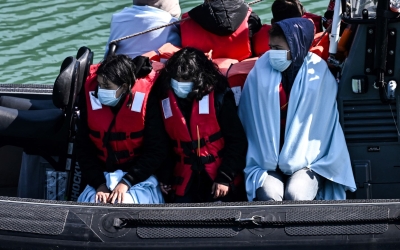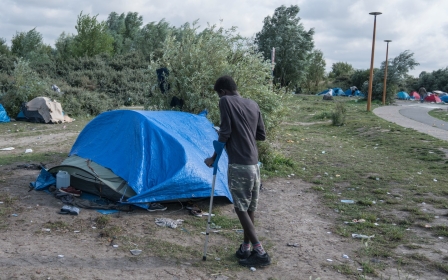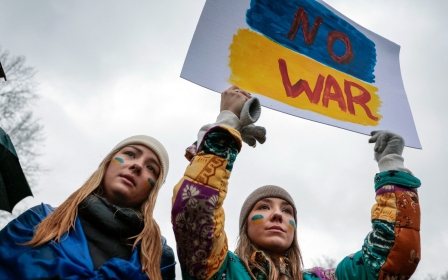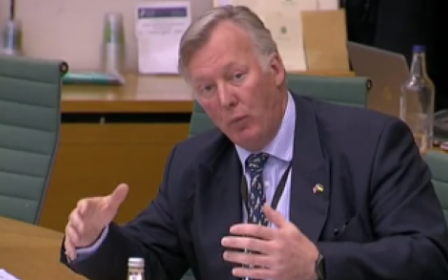The UK doesn't have a migrant crisis - it has a crisis of compassion
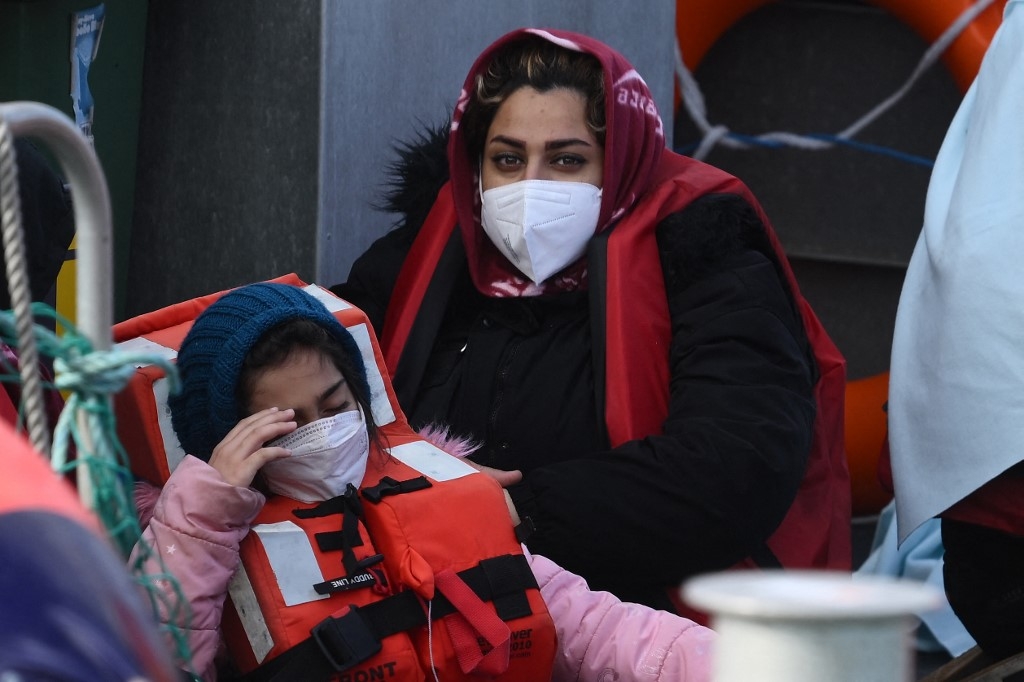
With all the talk of "invading" "illegal" migrants, £150-a-night hotels, and X-ray age confirmation tests, you’d be forgiven for thinking the UK is gripped in a "migrant crisis".
This couldn’t be further from the truth. Migrants aren’t behind this "crisis" - rather, it’s the UK government and its negligence and mismanagement. Nothing about this was inevitable - it’s a dead cat that serves to distract the British public from the shambles of our democratic system, at a great humanitarian cost to refugees.
Let’s start with the term "illegal asylum seeker". Court of Appeal decisions have consistently upheld that "an asylum seeker who merely attempts to arrive at the frontiers of the United Kingdom in order to make a claim is not entering or attempting to enter the country unlawfully", even if they have "no valid passport or identity document or prior permission to enter the United Kingdom".
There’s a dubious legal basis to the term "illegal asylum seeker": to cross the Channel clandestinely to lodge an asylum claim cannot be penalised under international law
The 2022 Nationality and Borders Act attempted to stipulate grounds to criminalise refugees intercepted in the English Channel, though prosecutions remain a matter for the Crown Prosecution Service (CPS), which will "take into account the public interest test".
Furthermore, the Home Office guidance published after the Nationality and Borders Bill was passed clarified that individuals intercepted at sea would not be considered illegal entrants. Given that any case prosecuted by the CPS would have to be compatible with the 1951 Refugee Convention that the UK has ratified, such prosecutions are more for political show than anything else - at great expense to British taxpayers.
There’s a dubious legal basis to the term "illegal asylum seeker": to cross the Channel clandestinely to lodge an asylum claim cannot be penalised under international law.
As for government policy, that’s a different story - the Office of the United Nations High Commissioner for Human Rights protested that the Nationality and Borders Bill runs "contrary to the letter and spirit of international human rights and refugee law". When bandying around the term "illegal", we’d do better to first take a long, hard look at our own legislation.
Inhumane treatment
Our economic policy and resource allocation aren’t much better. The UK is currently one of the few European countries where asylum seekers are broadly banned from working, plunging them into poverty and the black market, and forcing them to rely on woefully inadequate public services.
Time and time again, data has shown that asylum seekers’ main desire is to work. Instead, they languish in hotels that Home Secretary Suella Braverman brands as "£150-a-night nice four-star hotels", that are rife with child exploitation, or dropped off in the middle of cities and promptly forgotten about.
For all the inhumane treatment that we subject migrants and asylum seekers to, the way they’ve been characterised in the media would lead you to the conclusion that it’s the British public who've been victimised.
To start with, the exhortations for "illegal" migrants to take "legal routes" is purely nonsensical: two-thirds of Channel crossing arrivals are from war-torn countries such as Afghanistan, Iraq and Syria - from where there are simply no "legal pathways" to the UK.
In the last year, just 1,622 refugees were granted status through resettlement schemes - a negligible number compared to the 89 million forcibly displaced people worldwide. Taking Afghanistan as an example, more than a year since the Taliban takeover, the UK government has failed to open any functional resettlement pathways. Applicants to the Afghan Relocations and Assistance Policy (ARAP) scheme have been left waiting for over a year for resettlement - often in hiding under the threat of death.
Meanwhile, the 5,000 individuals eligible for the Afghan Citizens Resettlement Scheme (ACRS), which opened in January 2022, cannot even apply directly, but rather have to wait for the UK government to contact them; the most recent government data did not show a single successful applicant thus far.
Even if such individuals might be successful in the future, the scheme does not guarantee that they can be relocated with their families. It’s therefore no surprise that Afghans have consistently made up a quarter to a third of Channel crossings.
Within this context, the humanitarian need of those crossing the Channel is undeniable. This is further corroborated by the fact that 93 percent who crossed the Channel this year and 98 percent of those who crossed in 2021 applied for asylum, with 70 percent of those gaining it and, of those rejected, 44 percent were successful at appeal. The national average for cases overturned upon appeal is 44 percent.
A new low
The backlog in the asylum system is better accounted for by the levels of underfunding that have meant that just four percent of those arriving by boat to claim asylum in 2021 have received a decision.
Faced with the fact that more than 70 percent of those applying for asylum are successful, compared to the EU average of just under 40 percent, the rhetoric has now morphed to imply that the vast majority of migrants coming to our shores are liars.
To aspire to EU acceptance rates that include Greece, where an Afghan father was prosecuted for the death of his son in a shipwreck that the coastguard refused to tend to, or Poland, which left new-born babies to die of hypothermia in the forest between Poland and Belarus, is a new low.
The levels of panic about 40,000 refugees in the world's sixth-largest economy with historically low levels of unemployment speak volumes about our crisis of compassion, especially compared to four million Afghan refugees in Iran, 3.7 million Syrians alone in Turkey, and a whopping one in six refugees per capita in Lebanon.
Self-defeating xenophobia
This pandemic of xenophobia is not just limited to the ruling party. Shadow Chancellor Rachel Reeves urged Braverman to ramp up deportations, to great public condemnation. The Overton window has moved so far to the right that any discussion of migrants’ human rights, our obligations under international law or the positive impact migrants have on the economy in terms of output, productivity and growth has been relegated to a fringe view.
Let’s face the facts: we’ll never reach net zero migration. When faced with persecution, oppression, climate crisis, or abject poverty at home, no deterrent will prove strong enough - not even deportation to Rwanda, as former Home Secretary Priti Patel’s eye-wateringly expensive, failed scheme of dubious legality has shown.
The political class has essentially laid the human rights of some of the most vulnerable members of society on the altar of their political games
Moreover, we need migrants: staff shortages in all areas of the labour market, from the NHS to lorry drivers, from fruit pickers to factory workers, have resulted in supply chain disruptions and continue to drive inflation.
At a time in which few words are thrown around the political marketplace more than "growth", it speaks to our own self-defeating xenophobia that we’d prefer to keep out some of the biggest agents of growth, especially after a pandemic in which a largely foreign-born demographic of key workers kept us going.
It’s time we called this what it is: a crisis engineered by the UK government to distract from their shambolic internal issues.
The political class has essentially laid the human rights and general wellbeing of some of the most vulnerable members of society on the altar of their political games. This isn’t a migrant crisis - it’s a crisis of our moral conscience.
The views expressed in this article belong to the author and do not necessarily reflect the editorial policy of Middle East Eye.
Middle East Eye propose une couverture et une analyse indépendantes et incomparables du Moyen-Orient, de l’Afrique du Nord et d’autres régions du monde. Pour en savoir plus sur la reprise de ce contenu et les frais qui s’appliquent, veuillez remplir ce formulaire [en anglais]. Pour en savoir plus sur MEE, cliquez ici [en anglais].



